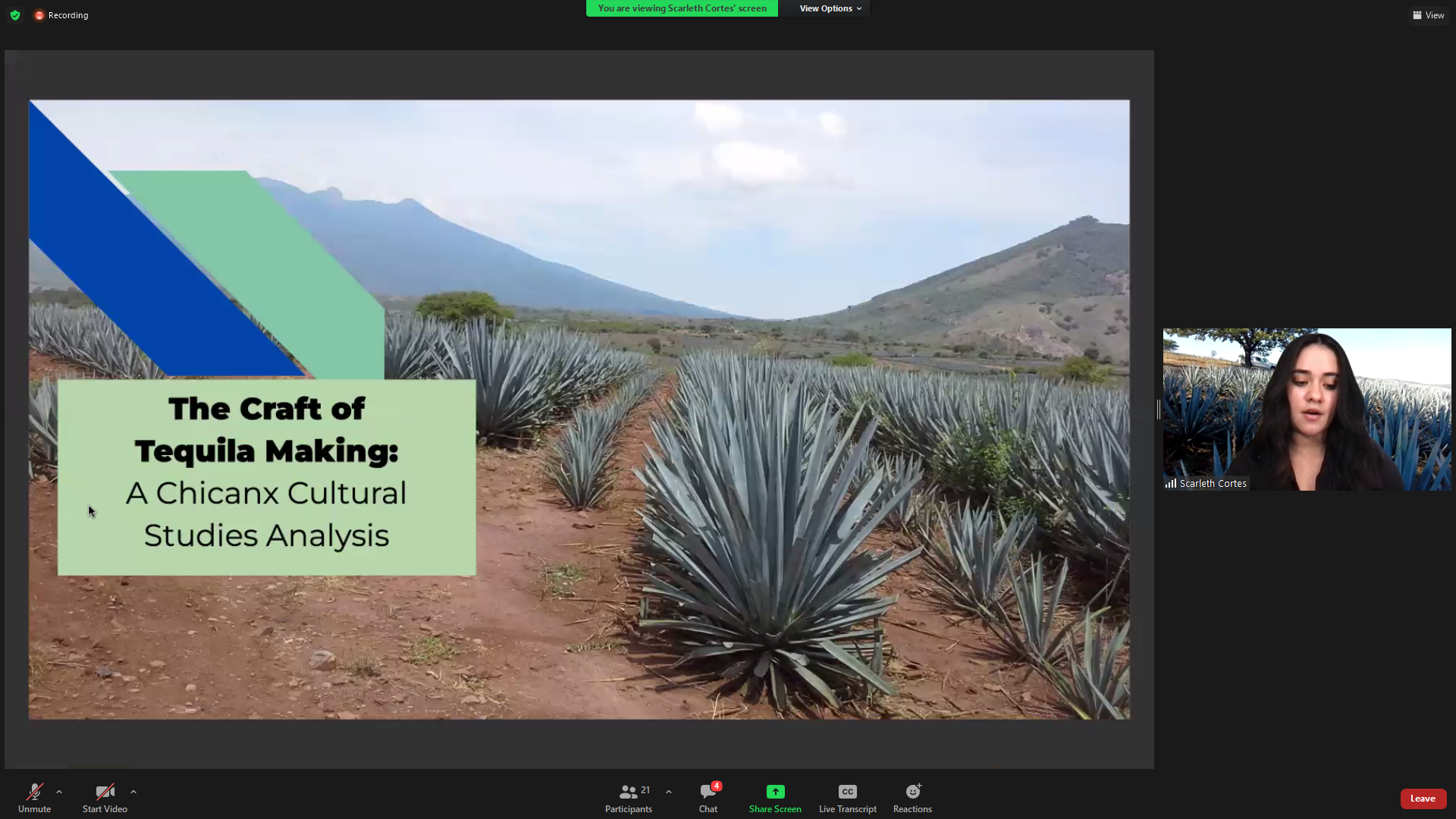The 13th annual Undergraduate Conference on Multiethnic Literatures of the Americas (UCMLA) conference featured research from 12 undergraduate English students focused on the interconnections of multiethnic literature across different cultures.
Organized by the department’s graduate students and faculty, the presentation started Friday morning with opening remarks from President Saúl Jiménez-Sandoval and was followed with the afternoon keynote speaker Rajini Srikanth, dean of faculty and professor of English at the University of Massachusetts Boston.
Amparo Ortiz, author of “Marvel’s Voices: Comunidades #1” and “Dragonblood Ring,” closed out the conference as the evening’s keynote speaker.
The conference is meant to provide a professional venue for undergraduate students to present their research in topics such as dismantling power structures, resisting stereotypes and reclaiming narratives.
The conference aims to give students experience in writing abstract papers and presenting them with a scholarly debate with professors in attendance.
During the debates, students and professors discussed the subject of the research presented, what it meant to the student conducting the research and how it serves to enhance the curriculum of Fresno State’s English Department.
The search for student presenters started last year with the UCMLA accepting research papers through January 2022. Students who graduated within the past year as well as first-year graduate students were able to submit their abstracts for the possibility of presenting at the UCMLA.
Presentations ranged from the cultural identity of lowrider culture to the Chicanx cultural study of tequila making.
During a “Reclaiming the Narrative” session, Scarleth Cortes presented her project “The Craft of Tequila Making: A Chicanx Cultural Studies Analysis.”
Cortes’ project highlighted how in the past there was an “intricate journey that agave goes through to become tequila and reach your table,” and focused on how in the present there is a disconnect between the traditional way of making tequila and the way it is being made now.
“After tequila was brought to the United States in the mid-1800s, it began to gain popularity rather quickly. Fastforwarding to the present, there is a large range of American tequila which are not authentically or ethically produced,” Cortes said.
She said tequila brands such as George Clooney’s Casamigos and Kendall Jenner’s 818 market their tequila through the appropriation of Mexican culture.
“For example, Kendall Jenner, who is a white woman, attempts to pass off as a Latina in her marketing of 818. From the clothes to the background of the agave field, her whole campaign is in appropriation of Mexican culture,” Cortes said
As someone who grew up visiting blue agave fields and tequila distilleries, Cortes said seeing the appropriation of Mexican culture brings to mind the hierarchy of cultures within power structures.
Evening keynote speaker Ortiz said that she didn’t read much growing up, but when she did the only time she felt represented was in teen romance stories, with frequent themes of girls falling in love with boys they barely knew.
But Ortiz said that representation always made her think of a saying she learned about from Puerto Rico whenever they would be represented in different forms of media: “I’m in this picture, and I don’t like it.”
“I was buying into the belief that romantic love was the endgame,” Ortiz said.
As an author, Ortiz said she made sure to have different aspects for representation in her books, such as a bisexual girl character and a gay boy character.
Ortiz closed the evening with a Q&A session, giving advice to writers at Fresno State. She said they should not limit themselves to the worlds they find from reading fantasy and should use aspects that come from a world that is familiar to both the reader and the writer.
“World building is like flirting. When you’re getting to know someone for the first time you need to create or give them symbols that they will associate with you,” Ortiz said.




